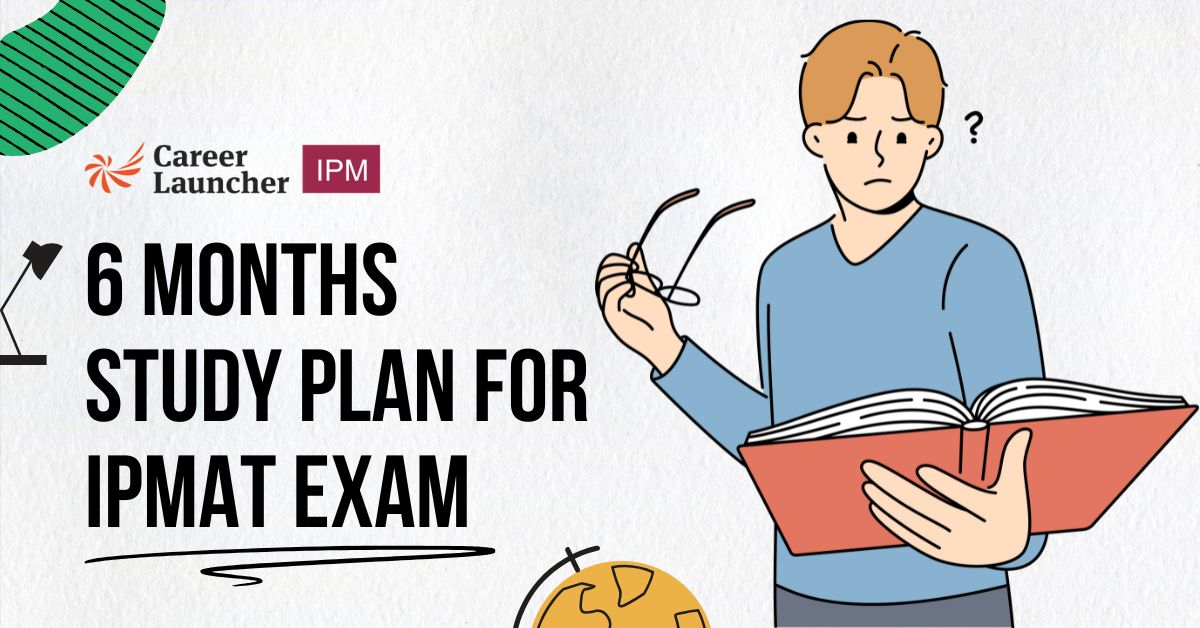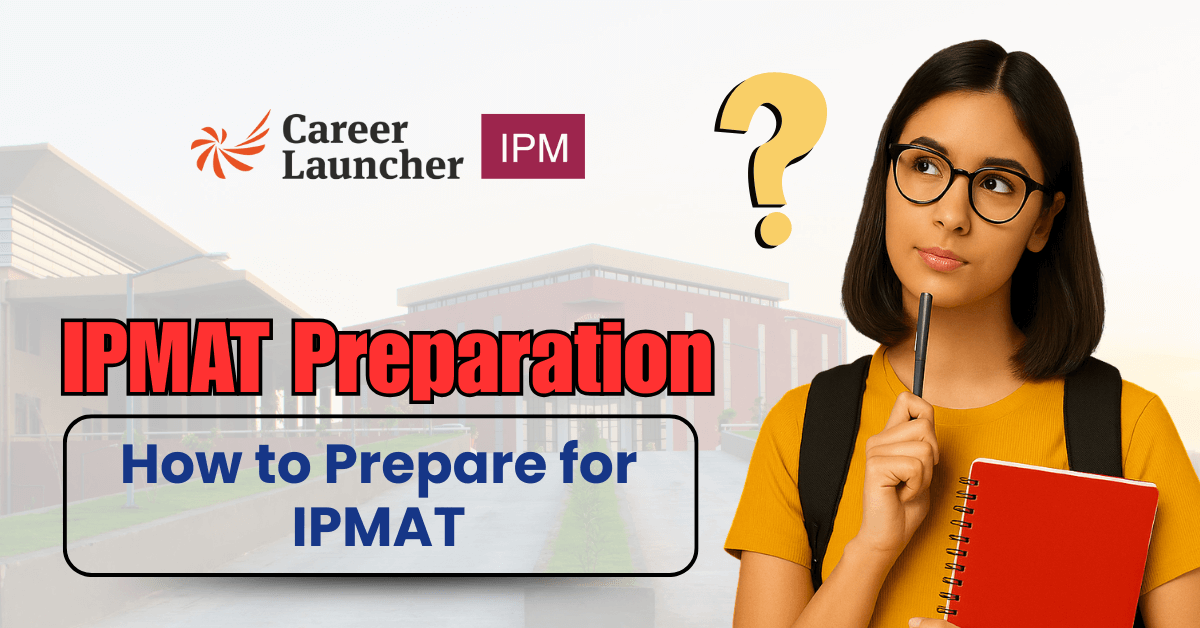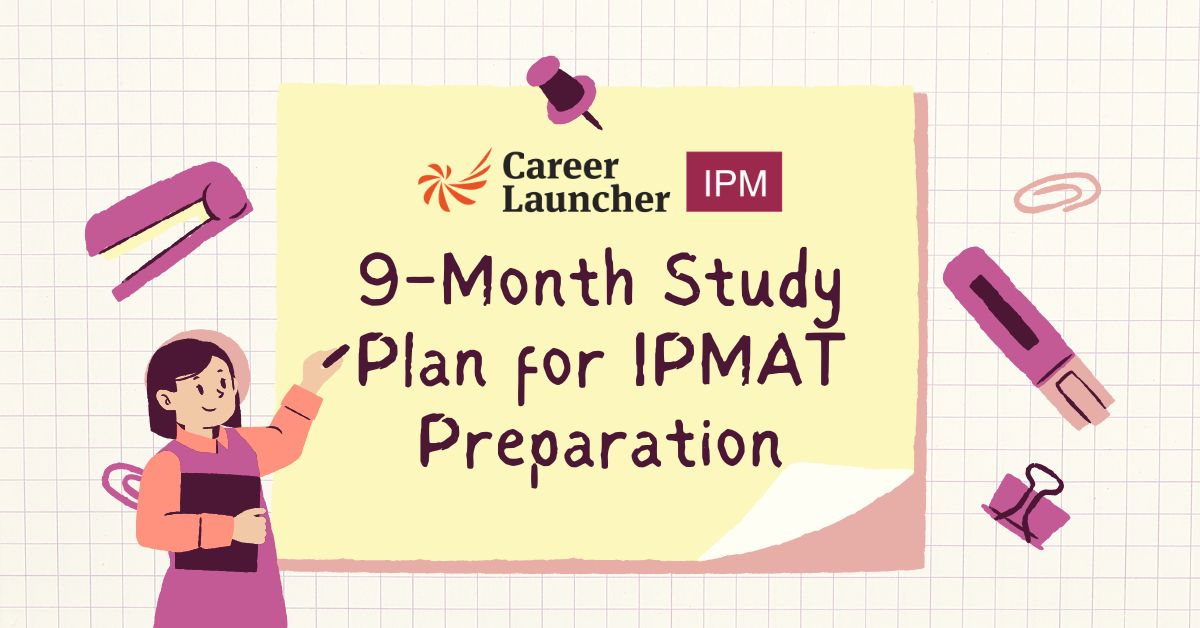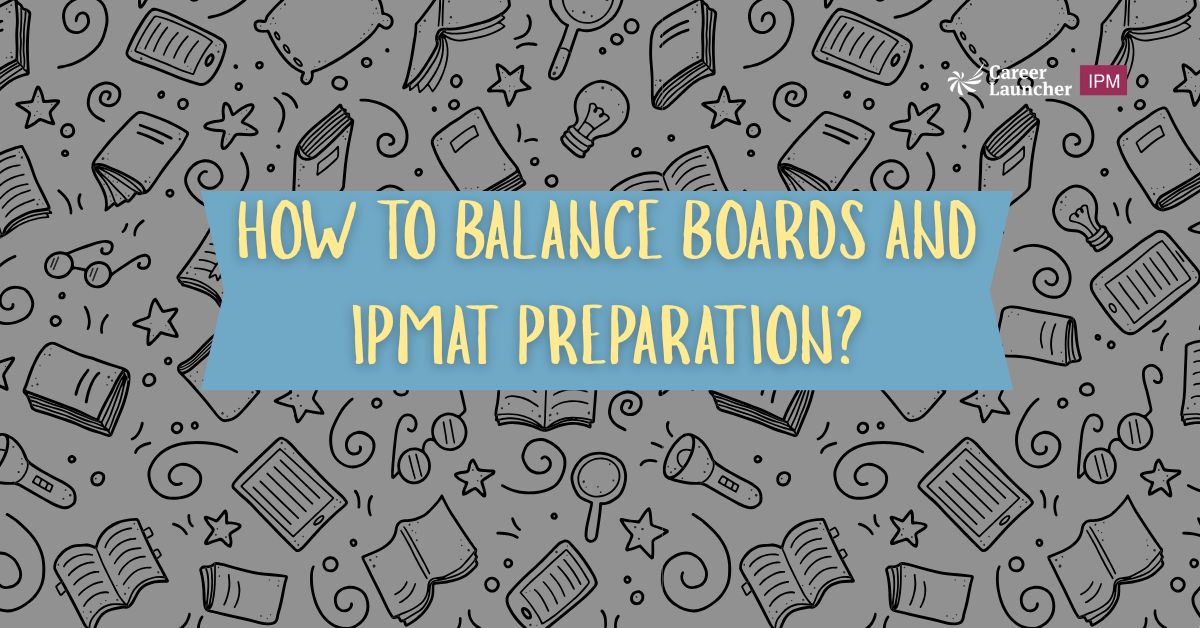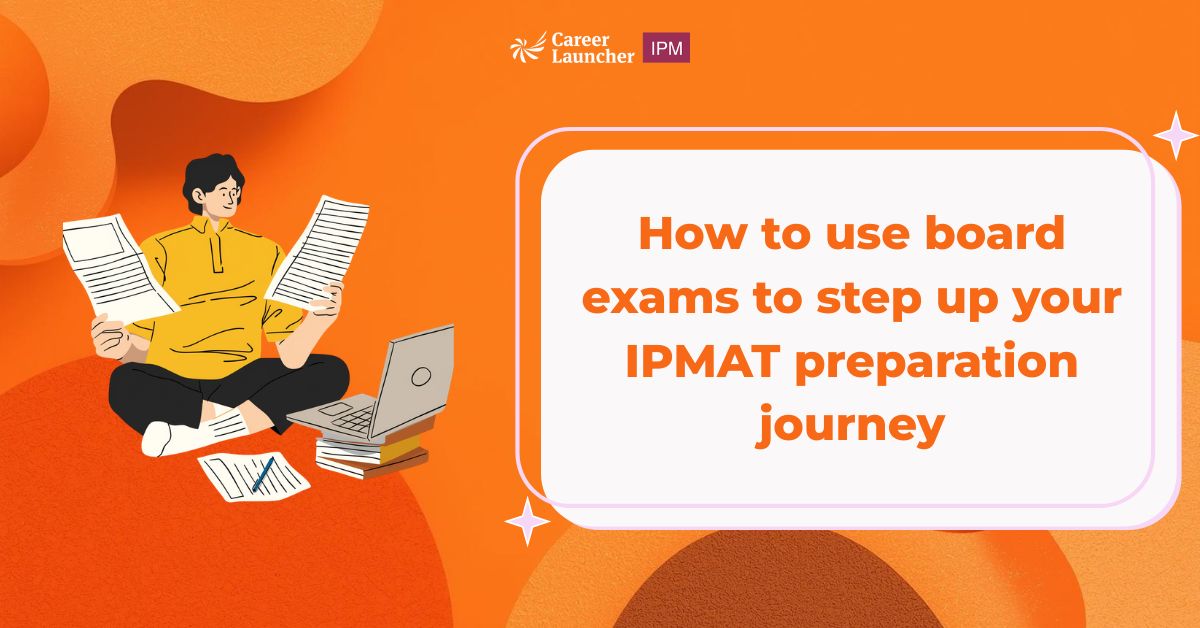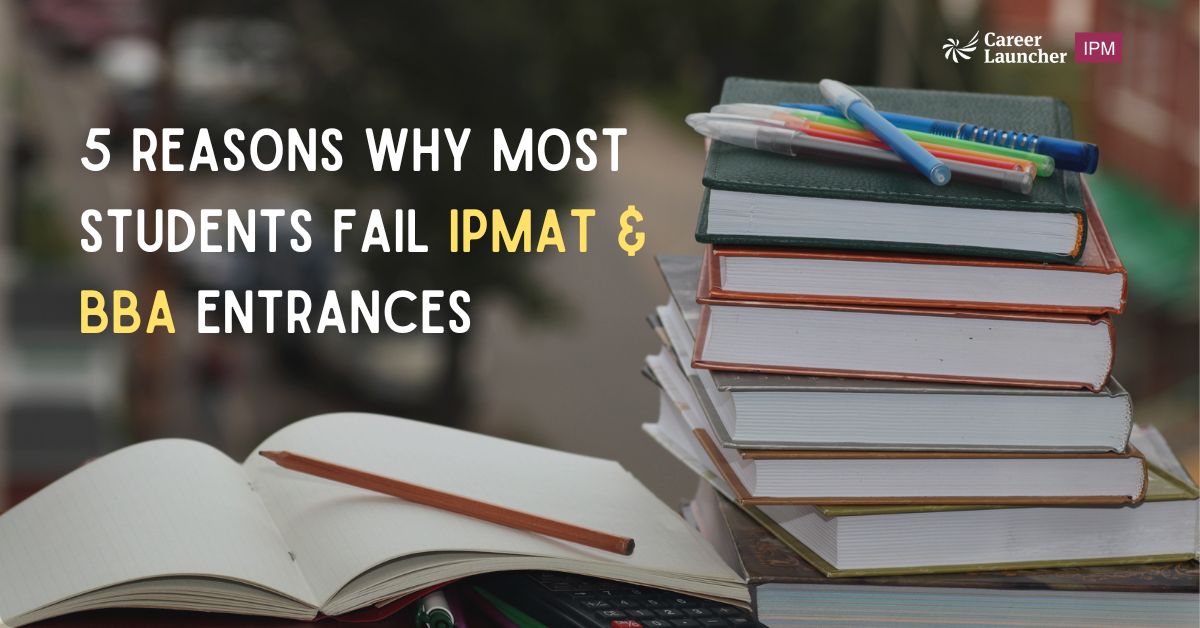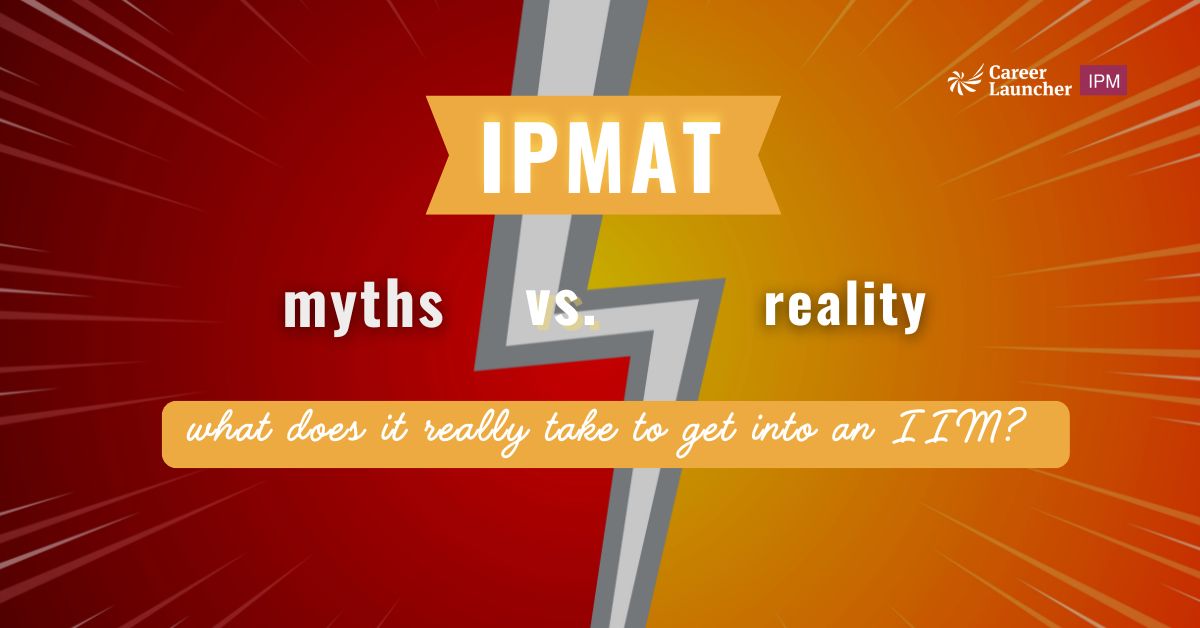If you want to ace the IPMAT 2026 in just six months, you need a plan, some good time management skills, and a lot of practice. Mock exams, expert advice, and subject-specific preparation can help you become more accurate and faster on test day.
Follow the blog below to learn more about how to crack the IPMAT 2026 Exam.
Table of Contents
Understanding the IPMAT Exam
Before you dive into preparation, it’s crucial to understand the exam’s structure and what it assesses. IPMAT typically evaluates candidates across three core areas: Quantitative Ability (QA), Verbal Ability (VA), and Logical Reasoning (LR). While specific patterns might vary slightly depending on the IIM (e.g., IPMAT Indore by IIM Indore, IPMAT Rohtak by IIM Rohtak, JIPMAT for IIM Jammu & Bodhgaya), the fundamental skills tested remain consistent.
Key Sections Assessed:
- Quantitative Ability (QA): This section tests your mathematical aptitude, covering topics from basic arithmetic to advanced algebra, geometry, and modern math.
- Verbal Ability (VA) & Reading Comprehension (RC): This evaluates your proficiency in the English language, including vocabulary, grammar, and comprehension skills.
Logical Reasoning (LR) & Data Interpretation (DI): (Primarily for IPMAT Rohtak & JIPMAT) This section assesses your analytical thinking and problem-solving capabilities.
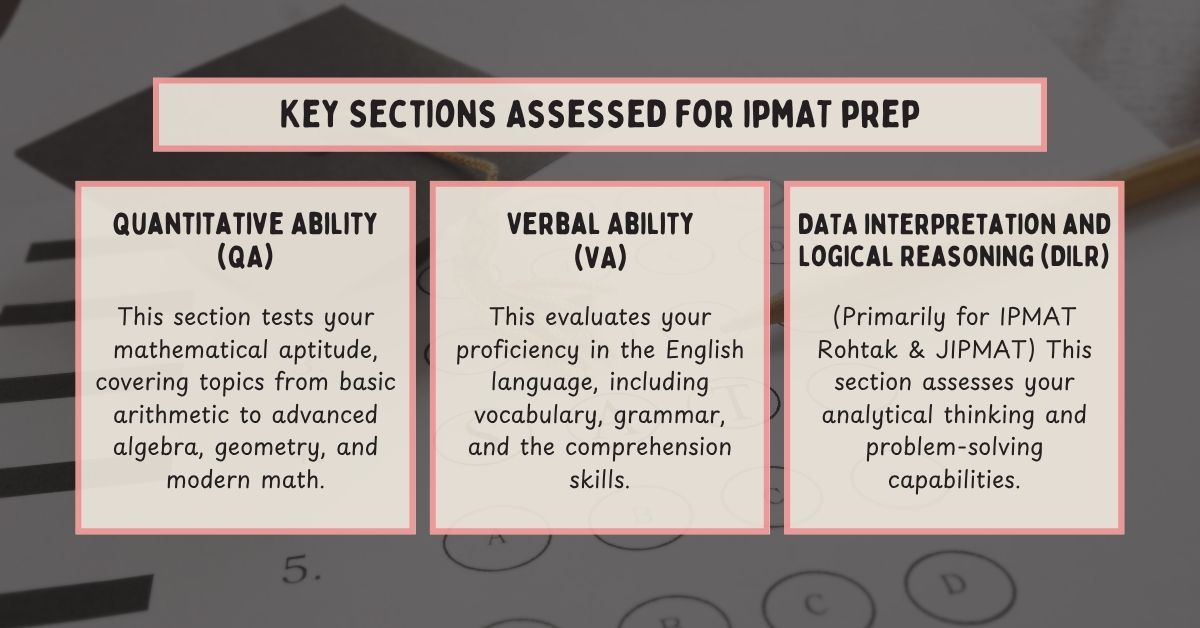
Your 6-Month Accelerated IPMAT Study Plan
This plan breaks down your preparation into manageable two-month phases, allowing for progressive learning and intensive practice.
6-Month Study Plan for IPMAT 2026 Exam
| Month | Quantitative Ability (QA) | Verbal Ability (VA) | Logical Reasoning (LR) / DI | Mocks & Strategy | Overall Goals |
| Month 1 | – Build basics in Arithmetic (Percentages, ratios, Averages, TSD, SI–CI, Time–Work) – Start basic Algebra (Linear/Quadratic equations, Inequalities): NCERT Class 9–10 revision | – Practise grammar fundamentals (tenses, SVA, modifiers) – 2 RC passages daily – Learn 10–15 vocab words/day | – Cover basic LR topics like Coding-Decoding, Blood Relations, Direction Sense, Series, and syllogisms—beginner-level sets | – Take a diagnostic test
– Identify strengths and weaknesses (Topic-wise) |
– Build a strong foundation – 3–4 hrs/day study |
| Month 2 | – Tackle advanced Algebra (Functions, Logarithms), Geometry & Mensuration, and Modern Math (Permutation & Combination, Probability, Set Theory, Number System nuances). | – Intensify RC practice, focusing on inference and critical analysis. Practice Para Jumbles and Sentence Completion extensively. | Move to complex LR puzzles (Seating Arrangements, Scheduling) and advanced Critical Reasoning. | Begin taking one full-length IPMAT mock test every 10-14 days.
Action: Analyse each mock thoroughly – identify conceptual gaps, silly mistakes, and time management issues. Please ensure that you update your Error Log |
– Strengthen fundamentals – Complete basics of all sections |
| Month 3 | Solve higher-difficulty problems. Begin practising Data Interpretation sets extensively. | – Practice Para Jumbles and Sentence Completion extensively.
Action: Expand your vocabulary by noting new words from your reading and mock tests. |
– : Practice a variety of DI sets (tables, charts, graphs) for speed and accuracy | – Start full mocks (1 every 10–14 days) – Analyse each mock deeply | – Finish 60–70% of the advanced syllabus – Start exam-oriented practice |
| Month 4 | – Complete remaining QA topics – Focus on tricky/weak areas | Revise RC + grammar review – Vocab consolidation | – Practise Medium → High-level LR – DI variety practice | – Keep 1 mock every 10–12 days | – Minimal preparation during this time; focus on maintaining consistency.
➔ Allocate 30–40 minutes daily for light revision and solving 2–3 mixed-topic questions For QA and LR/DI. ➔ Focus on VA (Vocabulary and Grammar) for 15–20 minutes/day by reading passages or solving 5 questions. |
| Month 5 | – Maximise speed and accuracy, refine your exam strategy, and build stamina for the actual test. Daily mixed QA practice – Speed-building drills – Advanced QA sets | -Practise High-level RC (philosophy, abstract) – Full grammar & vocab revision | – Solve Complex arrangements – Critical Reasoning – High-level DI | – Give at least 2 mocks per week. – Solve last 3–5 years PYQs | – Identify and fix patterns of mistakes; refer to your error log and check your mistakes |
| Month 6 | -Dedicate this time to only revising QA sets | – Solve RC + grammar + vocab revision everyday | – Revise LR/DI sets already done | -at least 2–3 mocks/week (until last 3–4 days) – Final strategy setup | – Final refinement – Build confidence – Light revision in last 2–3 days |

Essential Tips for Your 6 Months Study Plan for IPMAT
- Consistency Over Intensity: Short, regular study sessions are more effective and sustainable than sporadic long hours.
- Smart Study Material:
- NCERT Mathematics (Class 9-12): Your foundational text for QA.
- “Word Power Made Easy” by Norman Lewis: Indispensable for vocabulary.
- “High School English Grammar and Composition” by Wren & Martin: For comprehensive grammar mastery.
- Reputable IPMAT-specific study material: Look for comprehensive guides that cover all sections and provide ample practice.
- Quality Newspapers: For Reading Comprehension and current affairs.
- The Power of Mock Tests: Don’t just take them; analyze them meticulously. This is where true learning happens, allowing you to convert weaknesses into strengths.
- Create and Use an Error Log: A dedicated register for mistakes helps you track and re-learn concepts effectively. Review it regularly.
- Time Management is Crucial: Practice allocating fixed time to each section during mocks. Learn to identify and strategically skip time-consuming problems.
- Don’t Neglect Board Exams: Your Class 12 Board marks are important for your overall profile. Maintain a balance; never sacrifice one for the other.
- Stay Updated: Keep an eye on official IPMAT notifications for any changes in exam pattern, dates, or application processes.
- Seek Expert Guidance: A structured coaching program provides expert faculty, comprehensive material, regular mocks, and personalized feedback, which can be invaluable in an accelerated preparation timeline.
Beyond the Written Exam: WAT & PI Preparation
Clearing the aptitude test is just the first step. The Written Ability Test (WAT) and Personal Interview (PI) rounds are equally critical for final admission.
- Start Now (Subtly): Develop a habit of regularly reading about current affairs, business news, and socio-economic issues. This enhances your general awareness and articulation skills, crucial for both WAT and PI.
- Work on Communication: Actively participate in discussions, practice speaking clearly and concisely.
- Build Your Profile: Engage in extracurricular activities, leadership roles, and community service. These demonstrate qualities IIMs look for beyond academic scores.
- Post-Aptitude Test: Once you clear the written exam, dedicate focused time to WAT and PI preparation. Many coaching centers offer specialized training for these rounds, including mock interviews and personalized feedback.
Your Success Story Awaits!
Six months is a challenging but entirely feasible timeline to crack the IPMAT exam. Your determination, combined with a focused strategy and consistent effort, will be the key to unlocking your IIM dream. Believe in your abilities, stick to your plan, and embrace the journey.
Ready to accelerate your IPMAT preparation?
- Explore Comprehensive IPMAT Programs: IPMAT Coaching Programs
- Download Free IPMAT Study Material & Previous Year Papers: IPMAT & JIPMAT PYQs
- Attend a Free IPMAT Demo Class: CL MyZone Access

